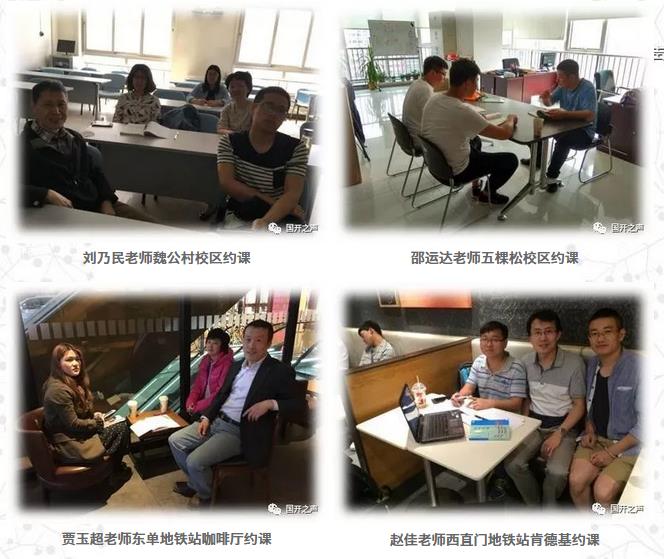"I have to work on the weekend, and my work has a rotating schedule. I often do not have time to attend class. Could you make the class schedule more flexible?"
"Ah, this time I was the only student, and I had to wait for one hour in vain. I feel like I have accomplished nothing today!"
Such situations often occur at in-person instruction on weekends at the Open University of China (OUC) Experimental School’s Weigongcun study centre. Tutors waited for students, but no one came; students looked forward to going to class on time, but failed to do so due to time conflicts with their work. Class counselors urge students to attend class on time, and hope to achieve better teaching effects, but fail. Such scenarios transpire even more frequently in unpopular majors. To resolve the "zero attendance rate," make a rational class arrangement in terms of time and place, break limitations of the current teaching mode, teaching time, and teaching place, optimize tutor-student resource arrangement, and properly provide teaching and learning support for students of less popular majors, Weigongcun study centre piloted a “class appointment system” utilised by tutors and students of certain courses during the 2017 spring semester.
Class appointments were adopted in classes with less than 10 students, and required that all tutors involved had strong organisational capabilities, abundant professional knowledge, and high enthusiasm for engagement. The tutors needed to provide a schedule of availability to students through WeChat or QQ groups before each course, seek suggestions regarding the class, and confirm the final time, place, and mode for each class. Only when the confirmed student attendance rate reached 50% could teaching be carried out. Tutors adopted strictly online, comprehensive, or blended lecture appointments. Students could make appointments for in-person instruction at the Wukesong or Weigongcun campuses, or other places students found convenient. After each appointment, tutors needed to file records in a timely manner.
The pilot programme involved 37 courses and 22 tutors during Weigongcun study centre’s 2017 spring semester. Majors studied were mainly Architectural and Civil Engineering (29%), Education (24%), and IT (24%). The total number of 2017 spring semester classes held as a result of the "class appointment" pilot was 123.
Three lecture modes were adopted for class appointments: in-person at Weigongcun study centre and other locations, as well as online instruction.

Of those 123 classes, online class appointments totaled 68, classes held at other locations (including on the Wukesong campus) numbered 13, and 42 classes were held at the Weigongcun study centre.
The class appointment has completely resolved the issue of students' zero attendance rate. Data shows that class attendance rates over the pilot’s four months had ups and downs, but on average reached 77.5%. Through this model, the tutors and students could coordinate both time and type of class, engaging more students in the teaching process, and alleviating students' worries concerning time conflicts between work and studies.
After the pilot, the OUC’s Experimental School sent a questionnaire to tutors and students involved in the programme. The questionnaire results demonstrate that, on the whole, tutors were highly satisfied with the pilot; with 41.67% rating themselves “very satisfied,” and 58.33% “satisfied,” satisfaction was at 100%. In terms of convenience, 91.67% of the tutors found class appointments convenient. In terms of support services, 83.33% of the tutors found the teaching support services very satisfying, and 16.67% were satisfied. According to the student survey, 83% were “very satisfied,” and 83.3% found the programme convenient and effective. Rating lectures delivered via the pilot, 66.67% of the students were “very satisfied,” and 16.67% stated they were “satisfied;” student satisfaction reached 83.34%.
The OUC Experimental School started with students’ learning demands, proceeded with a prominent problem in the teaching process, made minor reforms to address the issue, and provided better teaching support services.
Written by Zhang Anran, Edited by Yan Jingzhen, www.china.org.cn